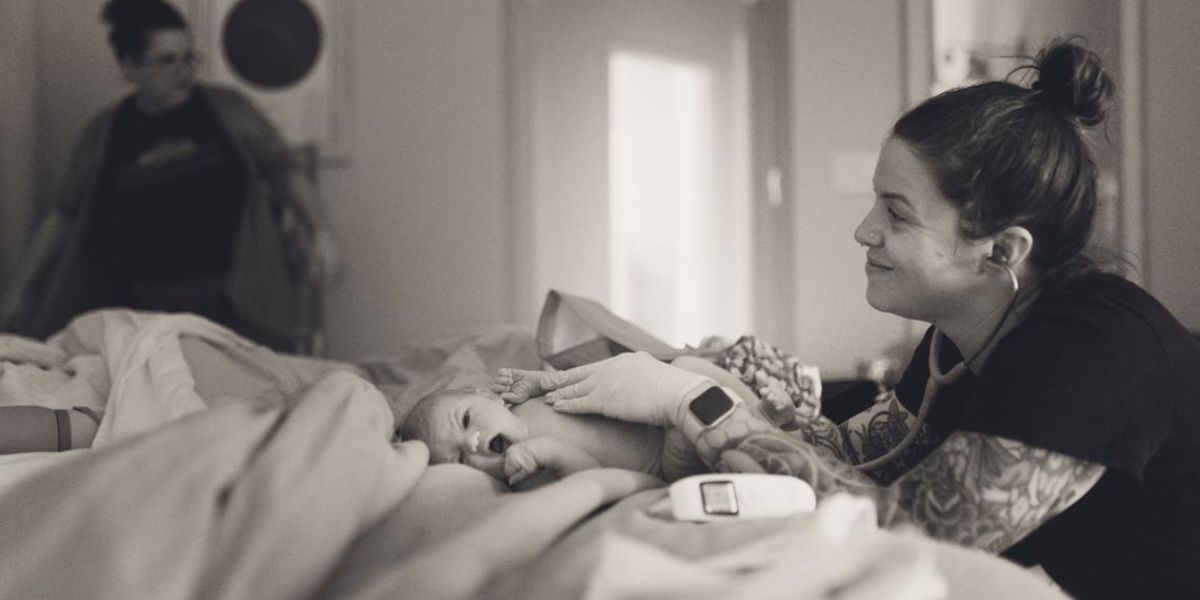Tampa’s Health Heroes – How Experts Are Preventing Maternal Deaths, See Here
TAMPA, Florida – The number of moms passing away during or soon after giving birth has once more returned to pre-pandemic levels. Health officials are still observing another increase in that death rate.
The number of maternal deaths has increased over the past 20 years, according to the Centers for Disease Control, and during the COVID-19 epidemic, the number of deaths among women reached a record that hasn’t been seen since the 1950s.
10 Reporter Andrea Lyon of Tampa Bay found that health officials are changing care to keep moms alive long after giving birth. For example, at Tampa General Hospital, the head of the Women’s Institute is putting new protocols in place to combat the death rate.
Chief of the Women’s Institute at Tampa General Hospital Dr. Judette Louis stated, “We first started with making sure when you hit our four walls, our hospital, that everyone who is taking care of pregnant patients recognizes when someone is getting sick.”
Dr. Louis claims that the majority of deaths in the country may be avoided. According to the CDC, treating patients early on or correctly the first time could have prevented almost 60% of the cases.
The reason for this is because a lot of hospitals are either closing or are no longer accepting deliveries. This implies that more women are being admitted to larger medical facilities, such as TGH, where staff members are currently receiving additional training to help them deal with trauma.

According to Dr. Louis, the age at which women are becoming pregnant is another factor contributing to the surge in mortality.
The National Vital Statistics indicate the beginning of the changes. In 1970, 22.5 was the average age at which a woman gave birth to her first child. In 2000, the average age increased to 24.6 years after thirty years.
SEE MORE – “Opinion!” Health Care Mandates—The Silent Tax Hike On Employers
According to the CDC, women who give birth for the first time typically age 27. It goes up to 29 years old for women with college degrees.
While 29 is still “young,” a woman’s chances of experiencing certain pregnancy-related complications increase as she ages.
“Possible maternal complications of pregnancy at age 35 or older include increased risk of spontaneous miscarriage, preterm labor, gestational diabetes mellitus, pre-eclampsia, stillbirth, chromosomal abnormalities, and cesarean delivery,” the National Library of Medicine’s piece titled “Women of Advanced Maternal Age” stated.
“It also means their recovery from pregnancy is also not as seamless because they have more conditions like high blood pressure, diabetes, things like that.” Dr. Louis continued.

Approximately 680 women perished in 2023 while pregnant or soon after giving birth, according to new preliminary data from the Centers for Disease Control. These numbers represent a decrease from the pandemic, when COVID-19 was killing over a thousand women annually.
The rate worries health professionals, particularly Charlie Young, a Tampa midwife.
Young began by highlighting the significance of encouraging healthy lifestyles before, during, and well after pregnancy. “For women carrying a baby, there’s all sorts of risks and then you add the culture that we live in, in America with a lot of people living sedentary lives, people having diets that maybe aren’t the best,” she said.
“It can be a matter of life and death for some people,” she stated.
SEE MORE – Alert! Understanding Bird Flu: Impact on Poultry, Dairy Cows Versus Human Health
The number of women who pass away during pregnancy or within 42 days after giving birth is another statistic monitored by the Florida Department of Health.
In 2022, the rate of maternal deaths in Hillsborough County was 34.8, which was significantly higher than the state average of only 15.2. In Hillsborough, six of the over 17,000 live births that year resulted in deaths. That year, 34 women died in the state. In terms of how many women died in 2022 in the state, Hillsborough and Miami-Dade are tied for first place.
Healthcare professionals note that the glaring racial inequality present in those figures is even more concerning than the rising mortality rate for new mothers.
According to the CDC, black moms are dying at a rate two-thirds higher than that of white or Hispanic mothers.
“Some Black and Brown people may find that their complaints are ignored or that they aren’t heard at all. Alternatively, they have a racially biased care team “said Young.
She stated that she thought the United States’ for-profit health systems needed to be reorganized.
“The focus needs to be how can we build better systems that have the mom and baby at the center and isn’t just focused on how much can we bill your private insurance for?” said she.
Young is a registered midwife in Florida who uses her holistic practice, Barefoot Birth, to deliver infants in Tampa.
She argues that in her practice, she prefers to put the needs of the mother and child first by concentrating on a personalized, one-on-one approach, which Young asserts typically produces better results.
However, Young and Dr. Louis both concur that postpartum care for moms is essential.
This is the reason why Dr. Louis’ team at Tampa General Hospital is currently improving the care that women receive in the months after giving birth.
This entails ensuring that moms can promptly access mental health resources, scheduling numerous follow-up appointments with primary care physicians, and continuing to lead an active lifestyle even while caring for a newborn at home.
“We’ve expanded our work to try and help patients getting healthier outside of pregnancy,” stated Dr. Louis. “So we have programs to get access to things like blood pressure cuffs, diabetes supplies and connecting them in the postpartum period.”
According to CBS, March of Dimes health professionals are advising moms to take a daily low-dose aspirin to control the blood pressure linked to complications like preeclampsia, which may be fatal if left untreated, in order to help prevent their own health concerns like that.











